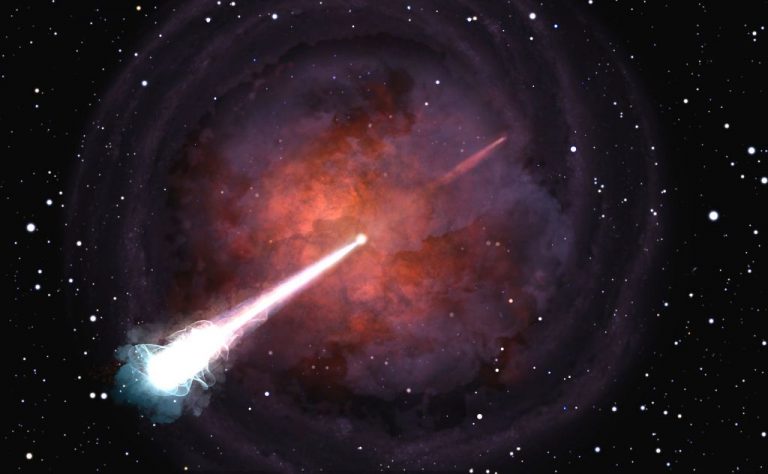IAU Symposium 363: Neutron Star Astrophysics at the Crossroads: Magnetars and the Multimessenger Revolution — 1st Announcement!
The 363st International Astronomical Union (IAU) Symposium will be held remotely, November 29th – December 3rd 2021.

Neutron stars are the strongest magnets known in the Universe. With central densities 5-10 times larger than the nuclear density and huge magnetic fields, in the TeraGauss range and above, neutron stars and their extreme manifestations, known as magnetars, provide unique laboratories to probe the properties of matter under conditions that can not be reproduced in ground-based experiments, or met in any other astrophysical environments. Magnetars are the remnants of core-collapse supernovae and binary neutron star mergers, both detectable sources of gravitational waves (GWs) by Advanced LIGO, Virgo and KAGRA.
A new era in the study of neutron stars was ushered in by the ground-breaking discovery of GW170817, the first multi-messenger transient observed through GWs and light. Different messengers provided complementary views of the same source, enabling a leap forward in our knowledge of relativistic jets, cosmic nucleosynthesis, nuclear physics and cosmology. This nascent field is set to soon revolutionize the study of neutron stars, magnetars and their links to the most spectacular cosmic fireworks, such as giant flares, gamma-ray bursts, kilonovae and supernovae.
The symposium will focus on the astrophysical implications of gravitational-wave and electromagnetic observations of neutron stars. It will discuss the status, perspectives and challenges in the blossoming era of multi-messenger astronomy in order to build a complete physical picture of neutron stars, both isolated and in binary systems. It will explore the many facets of neutron stars, from magnetars to extreme astrophysical phenomena, such as giant flares, gamma-ray bursts and kilonovae. It will include discussions on next generation facilities for multi-messenger astronomy and their associated science cases.
The symposium will bring together the most prominent specialists in neutron star physics, magnetars, gamma-ray bursts, gravitational wave observations and theory. It will represent a natural avenue to present and discuss the latest transformative results of multi-messenger observations of neutron stars. The symposium will be organized around a morning plenary session and two parallel sessions in the afternoon. Plenary sessions are designed to give a broad and interdisciplinary overview of neutron stars, their gravitational-wave and electromagnetic emission. The parallel sessions will instead provide a deeper insight into specific questions on the physics of magnetars on one side, and neutron stars as sources of gravitational waves, kilonovae and gamma-ray bursts on the other.
——————————————————————————————————————————–
Coordinating IAU Division: Division D High Energy Phenomena and Fundamental Physics
Supporting IAU Commission: Commission D1 Gravitational-wave astrophysics
INVITED SPEAKERS:
Felix A. Aharonian, Alessandra Corsi, Paolo D’Avanzo, Imma Donnarumma, Irina Dvorkin, Paolo Esposito, Chris Fryer, Ersin Gogus, Jeremy Heyl, Konstantitnos Gourgouliatos, Michael Kramer, Paola Leaci, Samaya Nissanke, Luigi Piro, Sergei Popov, Andrea Possenti, Bangalore Sathyaprakash, Patricia Schmidt, Masaru Shibata, Bogdanov Slavko, Masaomi Tanaka, Christina Thöne, Hendrik Van Eerten, Daniele Viganò, Linqing Wen
——————————————————————————————————————————–
For the Registration:
https://kuonicongress.eventsair.com/iau-363/registration
For the abstract submission:
https://kuonicongress.eventsair.com/iau-363/abstracts
Deadline to apply for financial support for the fee waiver: July 31st 2021
Deadline for abstract submission: August 31st 2021
The conference fee is 200,00 euro. It includes: access to the virtual platform and to all sessions during the conference week, access to all interactive tools and chat, access to all the recorded talks, electronic proceedings.
Please indicate when registering if you would like to be considered for financial support. To enlarge the participation about 100 fee waivers will be made available.All participants are welcome to apply. The Scientific Organising Committee will allocate travel grants according to scientific merit, gender balance and geographic location. Please note that, according to IAU policy, fee waivers are primarily aimed at PhD students, early-career researchers, and researchers from economically less privileged countries who otherwise would be unable to attend the meeting. Please also note that participants who apply for a grant do not have to pay their registration fee immediately.
SCIENTIFIC ORGANIZING COMMITTEE:
Marica Branchesi (chair), Gian Luca Israel (chair), Roberto Turolla (chair), Eleonora Troja (chair), Matthew Baring, Laura Cadonati, Bala Iyer, Nobuyuki Kawai, Tara Murphy, Rosalba Perna, Nanda Rea, Stephan Rosswog, Samar Safi-Harb, Dmitry Yakovlev, Silvia Zane
PROCEEDING EDITORS:
Eleonora Troja, Matthew Baring
LOCAL ORGANIZING COMMITTEE:
Marica Branchesi, Eliana Di Giovanni, Marco Drago, Gian Luca Israel, Andrea Maselli, Gor Oganesyan, Eleonora Troja, Roberto Turolla, Silvia Zane
